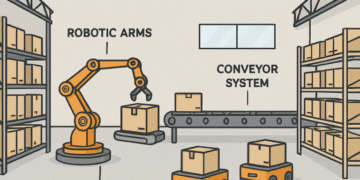Juggling debt payments and high-interest rates can be a big hurdle to reaching your financial goals. Discover offers tools and loans that can help you simplify your monthly payment through debt consolidation.
The concept is simple: you take out a new loan with a lower rate and use it to pay off your existing balances. But it’s not a magic bullet.
Credit Score
Many debt consolidation options can improve your credit score by converting revolving debt, like credit card balances, into term loans with lower interest rates. This can help you manage your debt and maintain a healthy payment history, which makes up 35% of your credit score.
A debt consolidation loan can simplify monthly payments by reducing accounts and due dates to track. It is important to remember that debt consolidation does not eliminate your outstanding debts but reduces the amount you owe and helps you create a strategic plan to pay it off.
However, there are ways to minimize the impact of debt consolidation on your credit score, such as using a personal loan with a fixed rate or a home equity loan that uses your house as collateral. Additionally, if you successfully meet your new debt repayment obligations on time, your credit scores should improve over time.
Cash Flow
When debt consolidation is done right, it reduces the number of payments you must make, making your bills easier to manage. It can also make your debt less expensive by reducing the total interest you pay and eliminating multiple credit card balances.
You can do this in a few ways, including through a personal loan or debt management program. Before taking any action, weighing the pros and cons and considering how they will affect your credit score is essential.
A business debt consolidation loan from Symple Lending can help reduce your business’s financial stress and improve its cash flow. Depending on your business’s needs, you may qualify for a loan with lower interest rates or a longer term. However, a debt consolidation loan won’t resolve your cash flow issues, which might require you to address business expenses or sales. For this reason, it’s essential to explore all your options for business debt relief before choosing a debt consolidation solution.
Taxes
Debt consolidation involves combining multiple debt payments into one, usually at a lower interest rate. This can help make it easier to manage a repayment plan and pay off credit card balances faster.
The two main debt consolidation methods are 0% balance transfer credit cards and debt consolidation loans. Regardless of the method, it’s essential to consider your specific financial situation before moving forward. To help you determine if debt consolidation is the right option for you, start by adding up how much you owe on all of your bills and then double-check your budget to find a target monthly payment. You can also talk to a Symple Lending expert.
Debt settlement, bankruptcy, debt management plans, home equity loans, and debt refinancing all have unique advantages and drawbacks. Tax professionals play a critical role in helping clients understand these options, assess the impact on their credit score, and ultimately decide whether or not debt relief makes sense for them.
Debts
Most debt consolidation strategies involve obtaining a new loan or credit line, which means you’ll need a good credit score to qualify for the best rates and terms. If your credit scores are low, it may be worth building them up before pursuing debt consolidation.
Having fewer bills to juggle also makes keeping up with your payments more manageable. That can help you avoid late fees, hurting your credit score.
A lower interest rate can also help you pay off your debt faster. As you work to reduce your debt, focus on paying more than the minimum amount due each month. That can help you get ahead of your balances and build equity in your home or investment portfolio.
Remember, though, that debt consolidation doesn’t address the habits and beliefs that led you to accumulate so much debt in the first place. If you continue to spend more than you earn, you’ll likely go back into debt even after paying off your consolidated debt.
Also, Read: Factors to Consider When Choosing Island Resorts

















